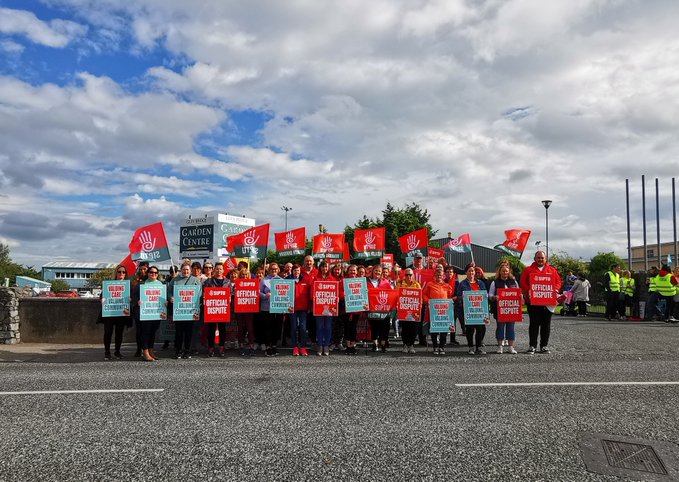SIPTU survey of radiation therapists reveals looming staffing crisis in cancer services
A SIPTU survey of radiation therapists has found that cancer services in both public and private hospitals are facing into significant staffing issues due to most respondents saying they intend to leave the profession within the next five years.
SIPTU Sector Organiser, John McCamley, said: “The survey found that 60% of respondents did not see themselves working as a radiation therapists in five years’ time. Some cited excessive workloads, staffing issues and a lack of a career pathway as the reasons they are considering leaving the service. Some are actively applying for other roles, while others are returning to education to seek an alternative career.
“Radiation therapy is used to treat around half of cancer cases and staffing issues in the service will have a knock-on effect on treatment waiting times. The survey also found that 48% of respondents are either ‘dissatisfied’ or ‘very dissatisfied’ with their current workplace. Participants believe their pay does not reflect the level of competency required for the role and feel undervalued. Some said they are under pressure and ‘worried’ about the number of patients waiting for radiotherapy.
“The survey also found that 88% of respondents are dissatisfied with their level of pay for the functions they carry out and that the majority would not recommend radiation therapy as a profession.
“The findings of the survey are very troubling. SIPTU representatives have previously called on the Minister of Health, Stephen Donnelly, to put in place an emergency plan to deal with the imminent staffing crisis in radiation therapy. The findings of this survey demonstrate that there is a need to address staff concerns within the service.”
He added: “The survey was carried out with SIPTU members in both public and private practice among the approximately 300 radiation therapists actively working across the country during 2023. The majority of respondents were in the 18 to 34 age cohort. It is very worrying that most state that they do not see themselves working in the field long-term. It calls into question the sustainability of the service if a coherent plan is not put in place to recruit and retain staff.”

